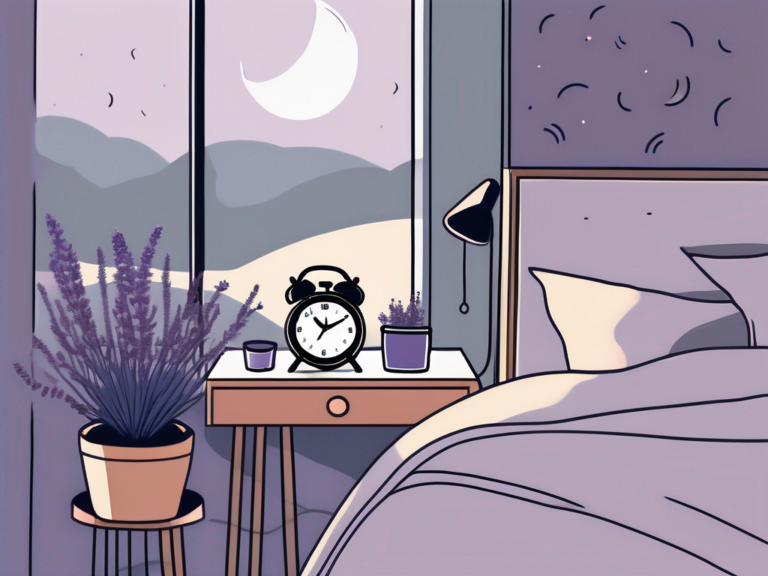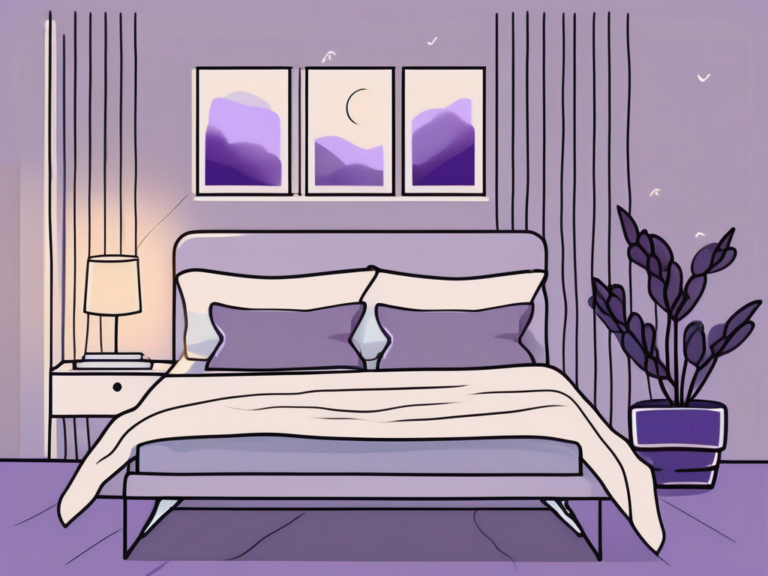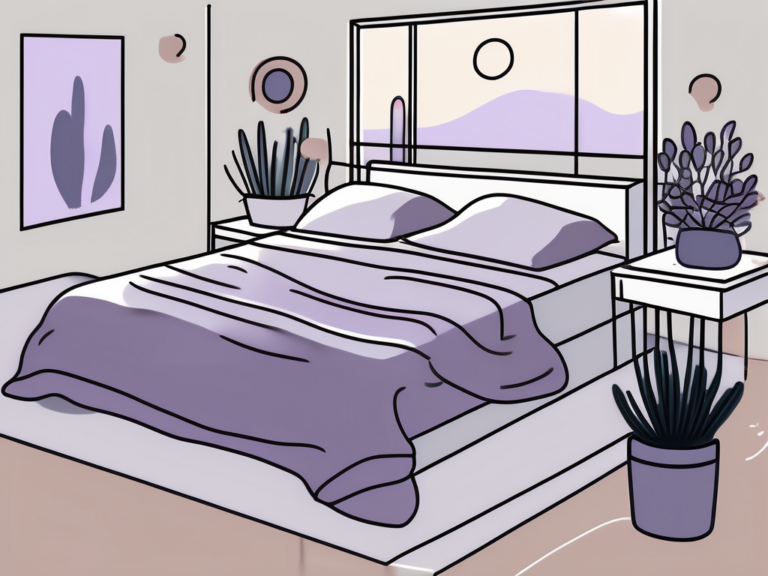How to Sleep Fast: Tips for a Restful Night
Having trouble falling asleep at night? In today’s fast-paced world, quality sleep can be elusive. However, by understanding the importance of quality sleep, making lifestyle changes, creating an ideal sleep environment, and establishing a sleep-enhancing routine, you can improve your sleep and wake up feeling refreshed and rejuvenated. In this article, we will explore various strategies and tips to help you sleep fast and have a restful night.
Understanding the Importance of Quality Sleep
Sleep is not just a passive activity; it plays a vital role in our overall well-being. During sleep, our body goes through different stages that promote physical and mental restoration. These stages include light sleep, deep sleep, and REM (Rapid Eye Movement) sleep. Each stage is important for different aspects of our health, including memory consolidation, hormone regulation, and immune system function.
Sleep deprivation or poor-quality sleep not only leaves us feeling tired and irritable but also impacts our cognitive abilities, concentration, and emotional well-being. Therefore, it’s crucial to prioritize sleep and adopt habits that lead to better sleep quality.
The Science Behind Sleep
Sleep is controlled by our circadian rhythm, an internal biological clock that regulates the sleep-wake cycle. This intricate system responds to light and darkness, influencing when we feel awake and when we feel sleepy. By understanding our circadian rhythm and aligning our daily routine with it, we can improve our sleep quality and fall asleep faster.
Why Quality Sleep Matters
Getting quality sleep is not just about feeling refreshed in the morning. Research has shown that good sleep is linked to numerous health benefits, including better immune function, improved memory, increased creativity, and reduced risk of chronic conditions like obesity, diabetes, and heart disease. Moreover, quality sleep enhances productivity, focus, and emotional well-being, leading to a better overall quality of life.
Let’s delve deeper into the fascinating world of sleep and explore the different stages that our brain goes through during the night. During light sleep, our brain waves slow down, and our body relaxes. This stage is crucial for memory consolidation, as it helps solidify the information we learned during the day. It’s like our brain is organizing and filing away all the new knowledge we acquired, making it easier for us to recall it later.
As we transition into deep sleep, our brain waves slow down even further, and our body enters a state of complete relaxation. This stage is vital for physical restoration, as it allows our muscles to repair and regenerate. It’s during deep sleep that our body releases growth hormone, which plays a crucial role in tissue repair, muscle growth, and bone strength. So, if you’re looking to enhance your athletic performance or recover from an intense workout, deep sleep is your best friend.
The Connection Between Lifestyle and Sleep
Our lifestyle choices significantly impact the quality of our sleep. By making conscious decisions regarding our diet, exercise routine, and stress management, we can positively influence our sleep patterns and fall asleep faster.
Diet and Sleep
What we eat and drink can affect how quickly we fall asleep and the quality of our sleep. Consuming heavy meals, caffeine, and alcohol close to bedtime can disrupt our sleep. On the other hand, having a balanced diet that includes sleep-promoting nutrients like magnesium and tryptophan can help regulate our sleep-wake cycle and promote faster sleep onset.
For example, foods rich in magnesium, such as leafy greens, nuts, and whole grains, can help relax our muscles and promote a sense of calmness before bedtime. Tryptophan, an amino acid found in foods like turkey, chicken, and dairy products, is a precursor to serotonin, a neurotransmitter that helps regulate sleep. Including these foods in our diet can provide the necessary nutrients to support a good night’s sleep.
Exercise and Sleep
Regular physical activity has been shown to improve sleep quality and reduce the time it takes to fall asleep. Engaging in moderate aerobic exercise, such as brisk walking, swimming, or cycling, can help regulate our body’s natural sleep-wake cycle. However, it’s important to finish exercising several hours before bedtime to allow our body temperature to cool down and prepare for sleep.
In addition to aerobic exercise, incorporating strength training into our routine can also have a positive impact on our sleep. Building muscle mass through activities like weightlifting or resistance training can help improve sleep efficiency and promote a deeper, more restorative sleep. So, if you’re looking to enhance your sleep quality, consider adding some strength training exercises to your fitness regimen.
Stress Management for Better Sleep
Stress and anxiety can wreak havoc on our sleep patterns. Incorporating stress management techniques into our daily routine, such as meditation, deep breathing exercises, or journaling, can help calm our mind and prepare us for a restful night. Additionally, establishing a relaxing bedtime routine can signal our body that it’s time to wind down and prepare for sleep.
Creating a soothing environment in our bedroom can also contribute to better sleep. This can involve using calming colors, such as soft blues or greens, in our bedroom decor, investing in a comfortable mattress and pillows, and ensuring that the room is cool, dark, and quiet. By creating a peaceful sanctuary, we can create the ideal conditions for a good night’s sleep.
Furthermore, it’s important to address any underlying sources of stress in our lives. Whether it’s work-related pressures, relationship issues, or financial concerns, finding healthy ways to cope with stress can greatly improve our sleep. Seeking support from loved ones, engaging in therapy or counseling, or practicing self-care activities can all contribute to reducing stress levels and promoting better sleep.
Creating an Ideal Sleep Environment
Creating a sleep-friendly environment can greatly influence our sleep quality. Factors such as light, temperature, bedding, and noise can either promote or hinder our ability to fall asleep quickly and have a restful night. Let’s dive deeper into these factors and explore how we can optimize our sleep environment for the best possible sleep experience.
The Role of Light and Temperature
Our body’s internal clock is highly sensitive to light and darkness. Exposure to bright light, especially blue light emitted by electronic devices, can disrupt our circadian rhythm and make it harder to fall asleep. Therefore, it is important to limit exposure to screens in the evening and create a dim and relaxing environment in the bedroom. Consider using blackout curtains or blinds to block out any external light sources that may interfere with your sleep. Additionally, keeping the room temperature cool, around 65-68°F (18-20°C), can facilitate sleep since our body temperature naturally drops to initiate sleep. You can achieve this by adjusting your thermostat or using a fan to create a gentle breeze that helps regulate the temperature in your bedroom.
Choosing the Right Bedding
Comfortable bedding can significantly impact our sleep quality. Investing in a good quality mattress, pillows, and sheets that suit our preferences and provide adequate support can make a noticeable difference in our sleep experience. When selecting a mattress, consider factors such as firmness level, materials used, and proper alignment of the spine. Finding the right balance between softness and firmness is subjective, so it’s important to choose bedding that promotes comfort and helps us relax. Additionally, pay attention to the quality of your pillows and sheets. Opt for pillows that provide proper neck support and choose sheets made from breathable materials that regulate temperature and wick away moisture, enhancing your overall sleep comfort.
Noise Control for a Peaceful Sleep
Noise disturbances can disrupt our sleep and make it difficult to fall asleep quickly. If you live in a noisy environment or have trouble with external noises, there are several strategies you can employ to create a peaceful sleep environment. Using earplugs can help block out unwanted sounds and create a quieter atmosphere. Alternatively, playing white noise or using a fan can help mask external noises by creating a consistent and soothing background sound. Additionally, implementing soundproofing measures, such as using heavy curtains or sound-absorbing materials, can minimize noise disturbances and contribute to a more restful night’s sleep. By taking these steps, you can create a serene sanctuary that promotes deep and uninterrupted sleep.
Remember, creating an ideal sleep environment is a personal journey. Experiment with different strategies and adjust your sleep environment based on your unique preferences and needs. By prioritizing the factors that influence your sleep quality, you can create a haven of tranquility that sets the stage for a rejuvenating night’s sleep.
Establishing a Sleep-Enhancing Routine
Incorporating regular sleep-enhancing practices into our daily routine can help regulate our sleep-wake cycle and prepare us for a restful night. But what exactly does a sleep-enhancing routine entail? Let’s dive deeper into the details.
One crucial aspect of a sleep-enhancing routine is the importance of maintaining a regular sleep schedule. Our body thrives on routine, and going to bed and waking up at the same time every day, even on weekends, can help regulate our circadian rhythm. By sticking to a consistent sleep schedule, we train our bodies to recognize when it’s time to wind down and when it’s time to wake up, making it easier to fall asleep and wake up feeling refreshed. Consistency in our sleep schedule is key to maintaining healthy sleep patterns.
The Importance of a Regular Sleep Schedule
Our body thrives on routine. Going to bed and waking up at the same time every day, even on weekends, can help regulate our circadian rhythm and make it easier to fall asleep and wake up feeling refreshed. Consistency in our sleep schedule is key to maintaining healthy sleep patterns.
Now, let’s explore some relaxation techniques that can be incorporated into our bedtime routine to further enhance our sleep quality.
Relaxation Techniques Before Bed
Engaging in relaxation techniques before bed can signal our body that it’s time to unwind and prepare for sleep. Activities such as taking a warm bath, practicing yoga, or reading a book can help relax our mind and promote a sense of calmness. These activities not only help us physically relax but also create a mental transition from the busyness of the day to a more peaceful state of mind. Avoiding stimulating activities, like watching intense TV shows or engaging in work-related tasks, at least an hour before bed is also recommended. By incorporating these relaxation techniques into our bedtime routine, we can set the stage for a more restful and rejuvenating sleep.
The Impact of Electronic Devices on Sleep
The blue light emitted by electronic devices, such as smartphones, tablets, and laptops, can suppress the production of melatonin, a hormone that regulates sleep. This can disrupt our sleep-wake cycle and make it harder for us to fall asleep. To minimize the negative impact of electronic devices on our sleep, it is crucial to limit screen time before bed. Using features like Night Mode or blue light filters can help reduce the exposure to blue light and promote better sleep. Additionally, keeping electronic devices out of the bedroom can create a sleep-friendly environment, free from distractions and the temptation to engage with screens late at night.
By understanding the impact of electronic devices on our sleep and implementing relaxation techniques into our bedtime routine, we can optimize our sleep quality and wake up feeling refreshed and rejuvenated. So, let’s prioritize our sleep and establish a sleep-enhancing routine that supports our overall well-being.
Overcoming Common Sleep Problems
Despite our best efforts, some individuals may experience common sleep problems that require specific attention and interventions.
When it comes to dealing with insomnia, it’s important to understand the impact it can have on our daily lives. Insomnia is a sleep disorder characterized by difficulty falling asleep, staying asleep, or waking up too early and having difficulty going back to sleep. It can leave us feeling exhausted, irritable, and unable to concentrate during the day. However, there are various strategies that can be employed to manage insomnia and promote better sleep.
Practicing good sleep hygiene is one such strategy. This involves establishing a regular sleep schedule, creating a relaxing bedtime routine, and ensuring that our sleep environment is conducive to restful sleep. Additionally, adopting relaxation techniques, such as deep breathing exercises or progressive muscle relaxation, can help calm the mind and prepare the body for sleep. For those who find that their insomnia persists despite these efforts, seeking medical advice from a healthcare professional can provide further guidance and potential treatment options.
Another common sleep problem that many individuals face is sleep apnea. Sleep apnea is a sleep disorder characterized by pauses in breathing during sleep. These pauses can occur multiple times throughout the night, leading to fragmented sleep and daytime sleepiness. Managing sleep apnea is crucial not only for improving sleep quality but also for overall health and well-being.
One effective treatment for sleep apnea is the use of Continuous Positive Airway Pressure (CPAP) devices. These devices work by delivering a constant flow of air pressure to keep the airway open during sleep. By ensuring that the airway remains unobstructed, CPAP devices can significantly reduce the number of breathing pauses and improve sleep quality. In addition to using CPAP devices, lifestyle modifications such as maintaining a healthy weight and avoiding alcohol and sedatives before bedtime can also help manage sleep apnea.
Restless Leg Syndrome (RLS) is another sleep disorder that can disrupt our sleep and leave us feeling restless and uncomfortable. RLS is a neurological disorder characterized by an uncontrollable urge to move the legs, usually accompanied by uncomfortable sensations. This urge to move often worsens during periods of rest or inactivity, making it particularly challenging to fall asleep or stay asleep.
Thankfully, there are solutions available to alleviate the symptoms of RLS and improve sleep quality. Making certain lifestyle changes can be beneficial, such as engaging in regular exercise, which has been shown to reduce RLS symptoms. Additionally, avoiding triggers like caffeine and nicotine, especially close to bedtime, can help minimize the discomfort associated with RLS. For individuals with more severe symptoms, medications prescribed by a healthcare professional, such as dopamine agonists or anti-seizure medications, may be recommended to provide relief.
By understanding and addressing these common sleep problems, we can take steps towards achieving a good night’s sleep and waking up feeling refreshed and rejuvenated. Remember, if you are experiencing persistent sleep difficulties, it’s important to seek guidance from a healthcare professional who can provide personalized advice and treatment options tailored to your specific needs.
When to Seek Professional Help
While implementing the strategies mentioned above can help improve sleep quality for most individuals, certain situations may require professional intervention.
Recognizing Chronic Sleep Issues
If you consistently struggle with falling asleep, staying asleep, or feeling excessively tired during the day despite following good sleep practices, it is important to consult a healthcare professional. Chronic sleep issues may indicate an underlying sleep disorder or medical condition that requires proper diagnosis and treatment.
The Role of Sleep Clinics
Sleep clinics specialize in diagnosing and treating sleep disorders. If your sleep issues persist or worsen, a sleep clinic can provide a comprehensive evaluation, monitoring your sleep patterns overnight, and recommending appropriate treatments or therapies to improve your sleep quality.
Medication and Sleep Therapy Options
In some cases, medication or sleep therapy may be necessary to manage sleep disorders or chronic sleep issues. Consulting with a healthcare professional can help determine the most suitable treatment options based on your specific situation and needs.
By understanding the importance of quality sleep, making lifestyle changes, creating an ideal sleep environment, and establishing a sleep-enhancing routine, you can increase the likelihood of falling asleep quickly and experiencing a restful night. Prioritizing sleep and investing time and effort into improving sleep quality will not only leave you feeling refreshed and rejuvenated but also positively impact your overall health and well-being. So why wait? Start implementing these tips and enjoy a better night’s sleep tonight!






